Freetown, Sierra Leone
CNN
—
“It happened as if it was a dream,” says Gabriel Fattah Manga, recalling the day his world came tumbling down around him, and his life changed forever.
Early last Monday morning Manga, 25, was preparing to head to work as a carpenter in the Regent area of Freetown, Sierra Leone, when he realized something was badly wrong
“The land was trembling and the whole area was trembling with me,” he tells CNN, his eyes still red-rimmed with emotion. “I came out to see what was happening. I saw water going down … When I moved up to three meters, I saw this whole mountain coming.”
A massive mudslide, sparked by heavy rains and flooding in an area that has suffered years of deforestation, was speeding down the slopes of Mount Sugar Loaf, towards his home in one of the makeshift shanty towns that dotted the hillside.
Manga survived, but an entire generation of his family was swept away in the devastation.
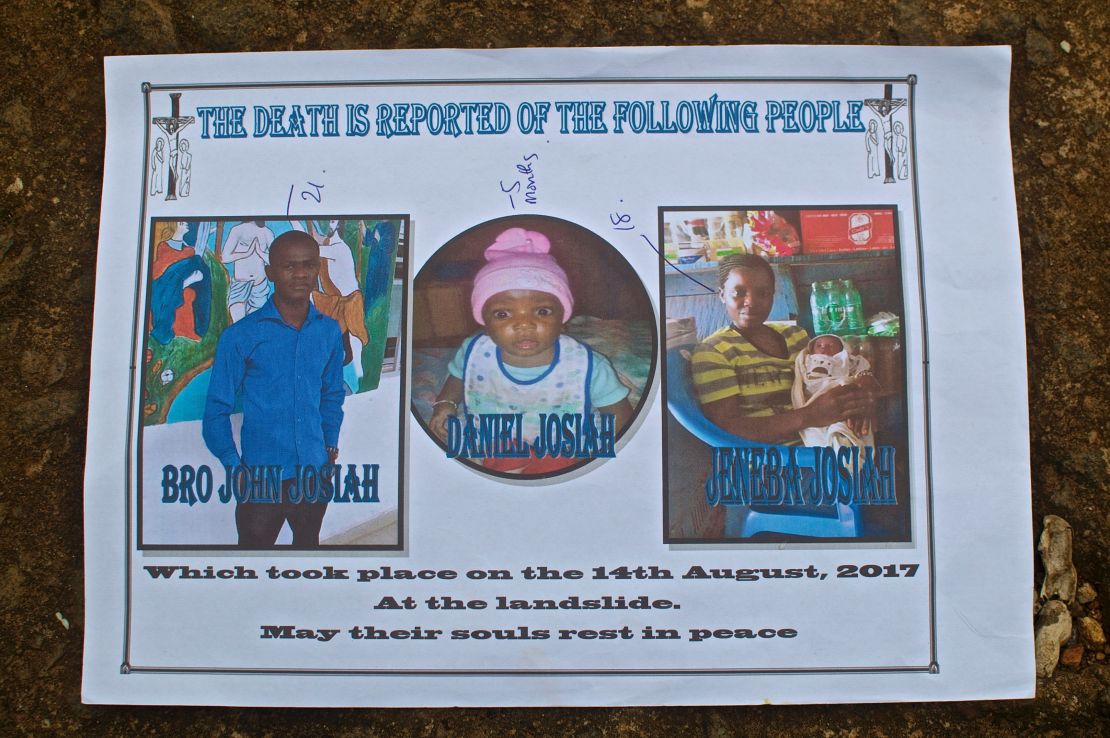
“I lost my mother Kumba, who I love so much,” he says. “I lost my brother John – I was in love with my brother. I lost his wife Jeneba, their baby Daniel, who is five months old. My elder brother also lost his two children.”
Manga now sleeps on a bench outside the single-story brown building his surviving family members call home. Pasted on the wall above the bench is a picture of his mother and the members of his family he has lost.
“I lost my family, I lost my people. I lost my place,” he says, a weary, resigned look on his face. “All has gone.”
READ MORE: Cholera fears as mudslide toll rises
Manga is far from alone. According to the latest death toll, 499 people, including more than 150 children, were killed in the Regent mudslide.
Hundreds more remain missing, and relatives are losing hope that their loved ones will be found alive.
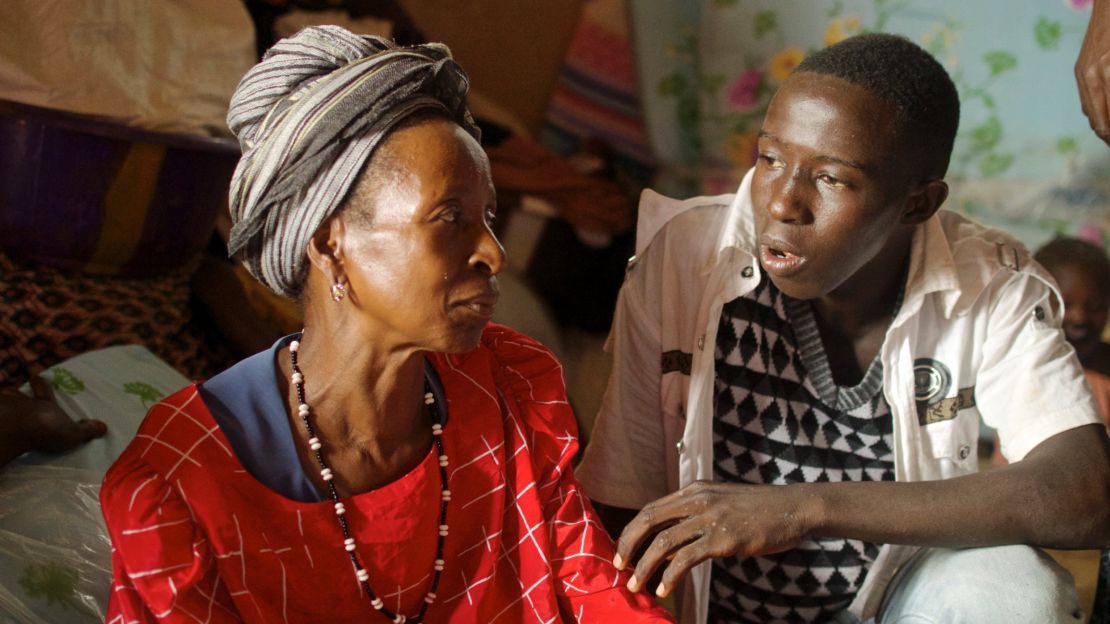
Mariama Koroma, 23, sits across the street from Manga’s home, outside the small building where she and some 50 other women and children are sheltering, clutching a photograph of her five-month-old niece Mariatu.
Mariatu and her mother, Koroma’s older sister Fanta, 35, have been missing since a tide of sodden red earth swept away their home. The family has been unable to find any sign of them where their house used to stand.
“When I go there, I didn’t see her house. We’ve driven everywhere and we can’t find her body,” she says. “The bodies are under there. My mother is now unconscious. I’m worried that she will not make it.”
Inside the dark, cramped shelter, Wuiatu Kondeh sits on a still-wrapped mattress. Clutching her two-year-old daughter, she weeps as she tells of how she escaped from the mudslide, only to realize she couldn’t find her husband, Lansana, 25, a motorbike taxi driver.
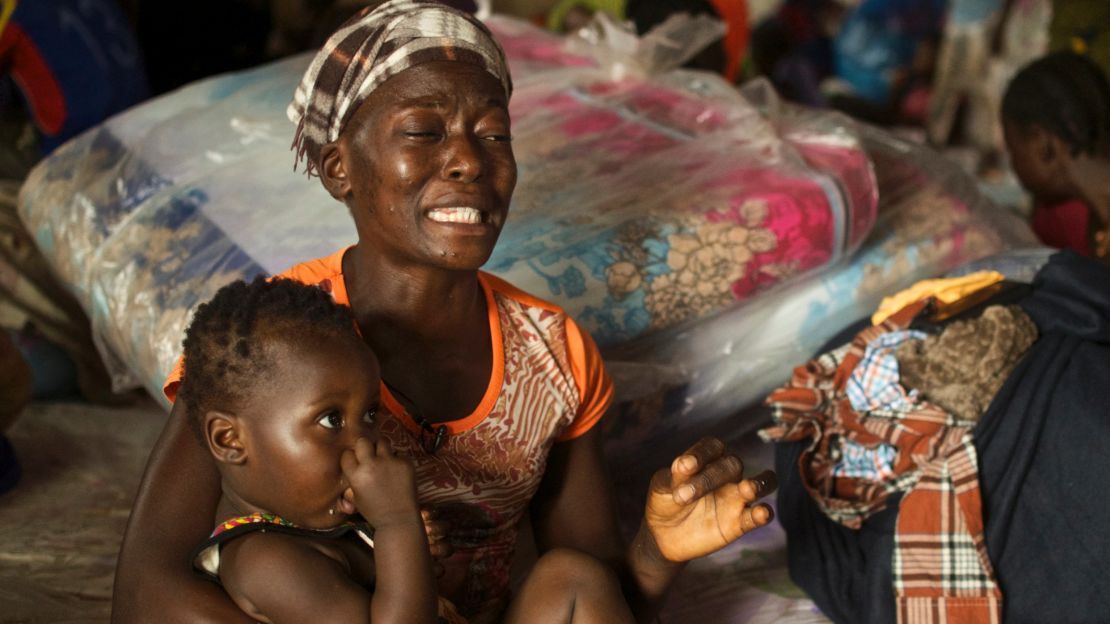
“We saw the hill coming down and we ran away,” she says, remembering fragments and details of that day. “Someone carried my child. I didn’t have my slippers.”
“Later, I looked for my husband and I didn’t see him,” she says, sobbing quietly, her face etched with pain. “I didn’t see my uncle … my sister, she lost two of her children. I didn’t see her again.”
Kondeh and her husband had only moved to the Mount Sugar Loaf area in June, after saving up to rent a home there. With that home destroyed, she and her baby daughter are left to sleep on the floor of this shared building.
Outside, the search continues, with rescue workers digging through the dirt for bodies, the stench of decomposing remains hanging in the air.
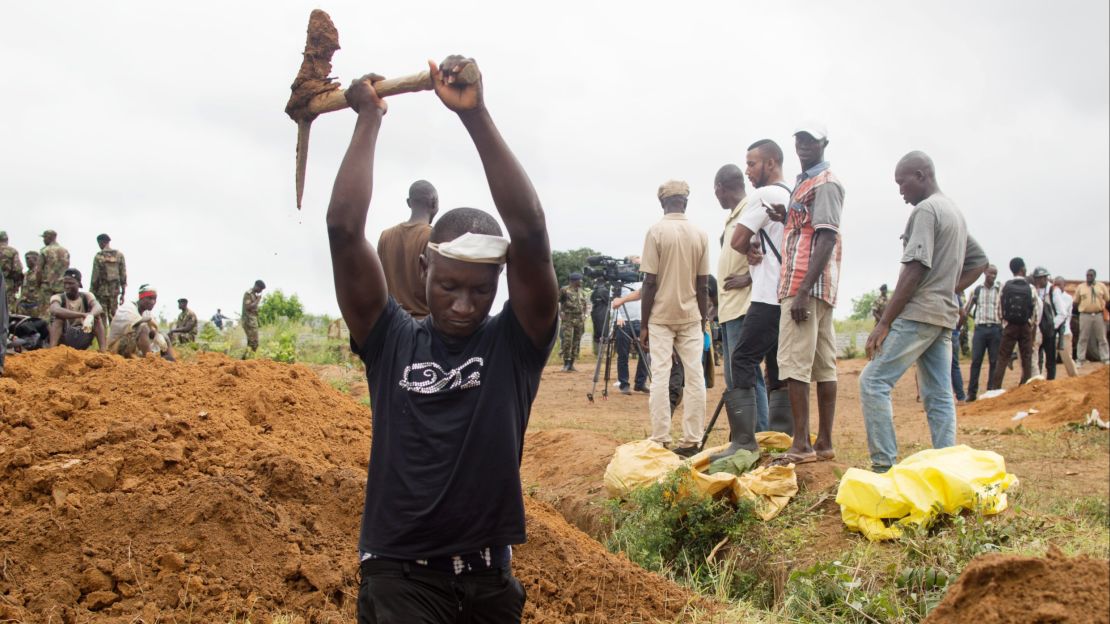
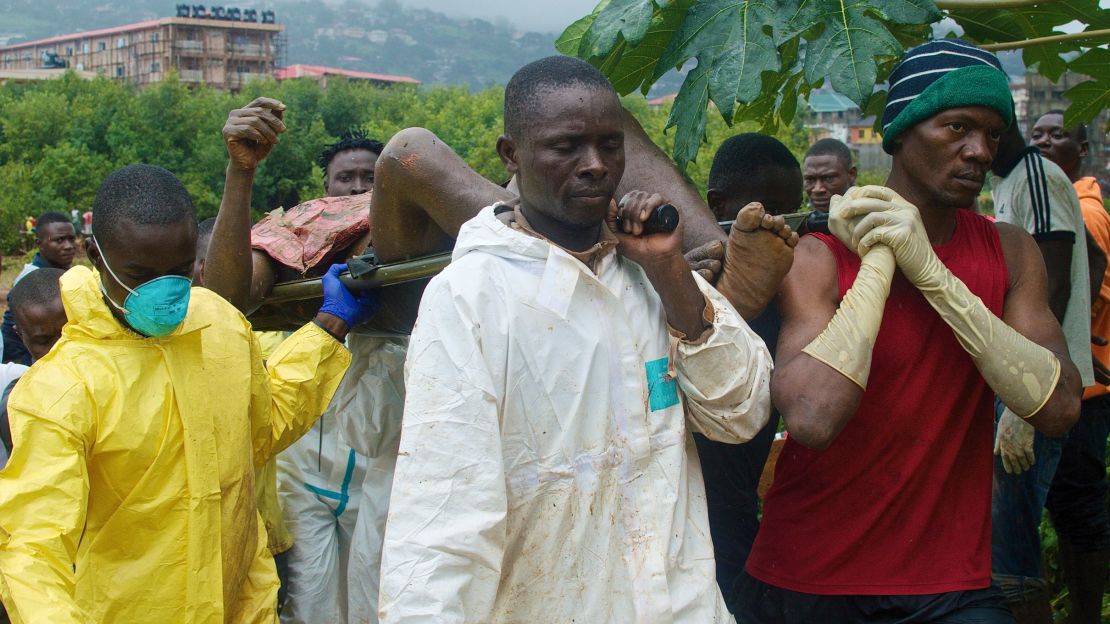
READ MORE: Hundreds of bodies pulled from rubble
Sierra Leone faces a steep road to recovery. A small nation of 7.4 million people, it has been beset with more than its fair share of tragedies in the past.
It now has 20,000 displaced people – around 5,000 of whom are children – to care for and rehouse, according to presidential spokesman Abdulai Bayraytay.
For now, some are being looked after by aid agencies such as Unicef.
Inside one of the NGO’s tents in Regent, children play, seemingly as carefree as kids the world over, but look closer, and they bear the scars and scabs that tell of their struggle to survive the mudslides.
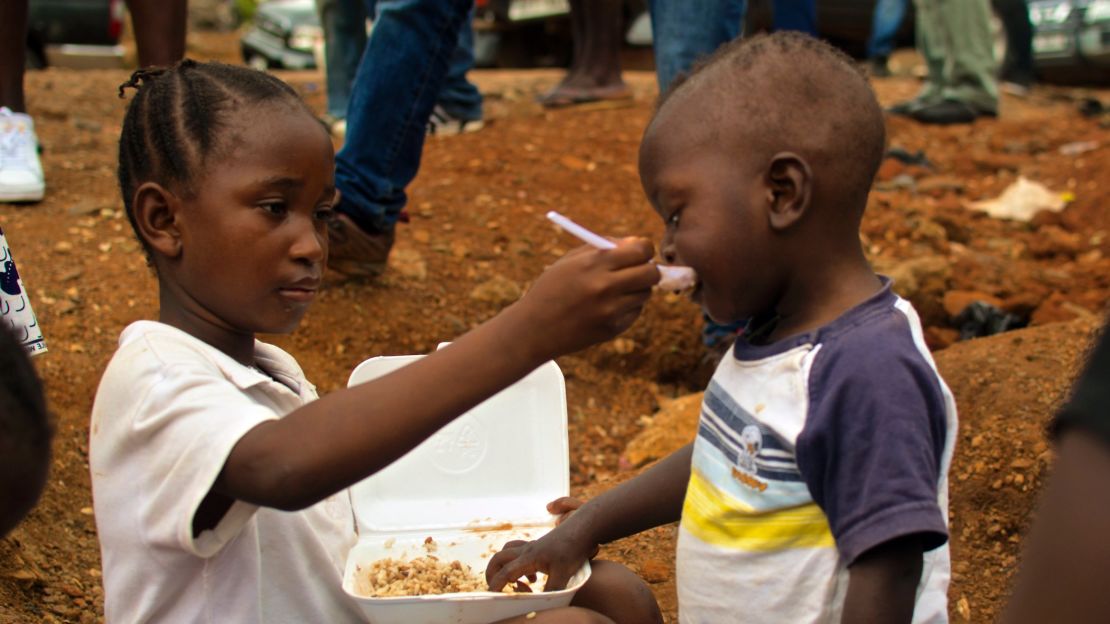
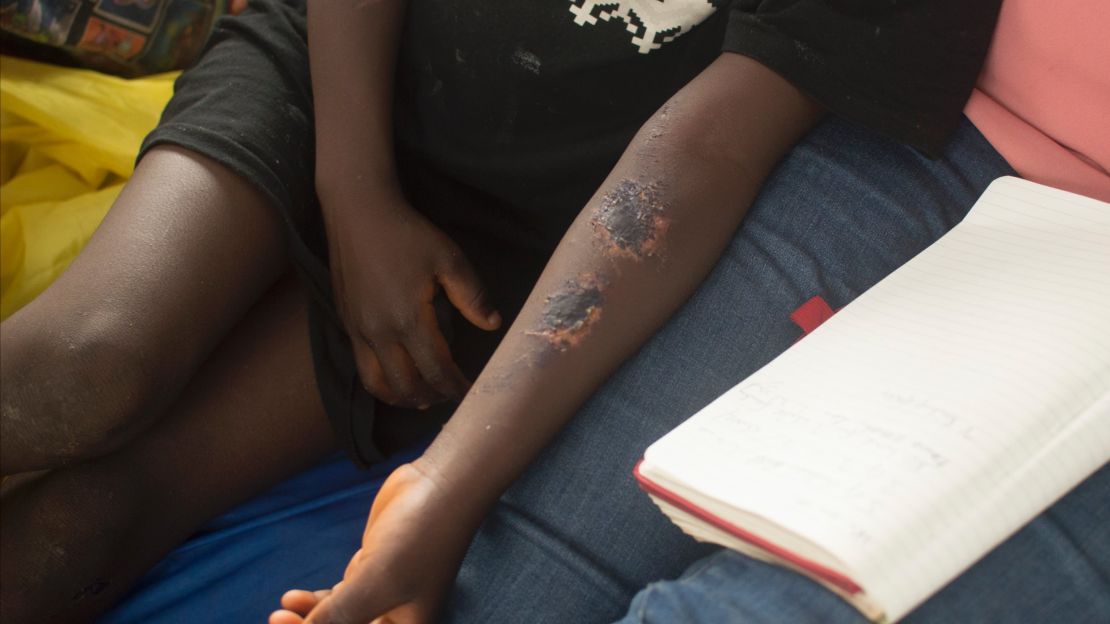
Bayraytay has appealed for more international aid – medical supplies, shelters, blankets – to help Freetown recover.
He warns there’s a high risk of cholera as people are still living in the devastated areas, without clean water and sanitation, and says the country cannot manage on its own.
“We are overstretched,” he says. “We are just on the verge of recuperating after Ebola and the civil war. We are overwhelmed.
“Sierra Leone is a small country with a small economy and we cannot do this alone … we appeal very passionately to the world to come to (our) aid.”
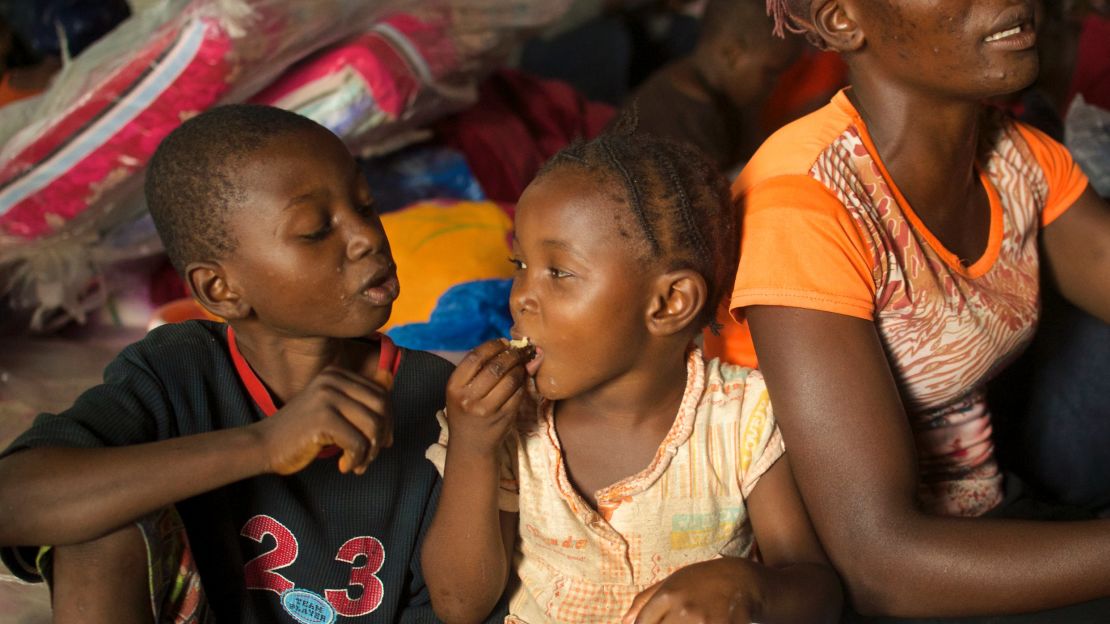
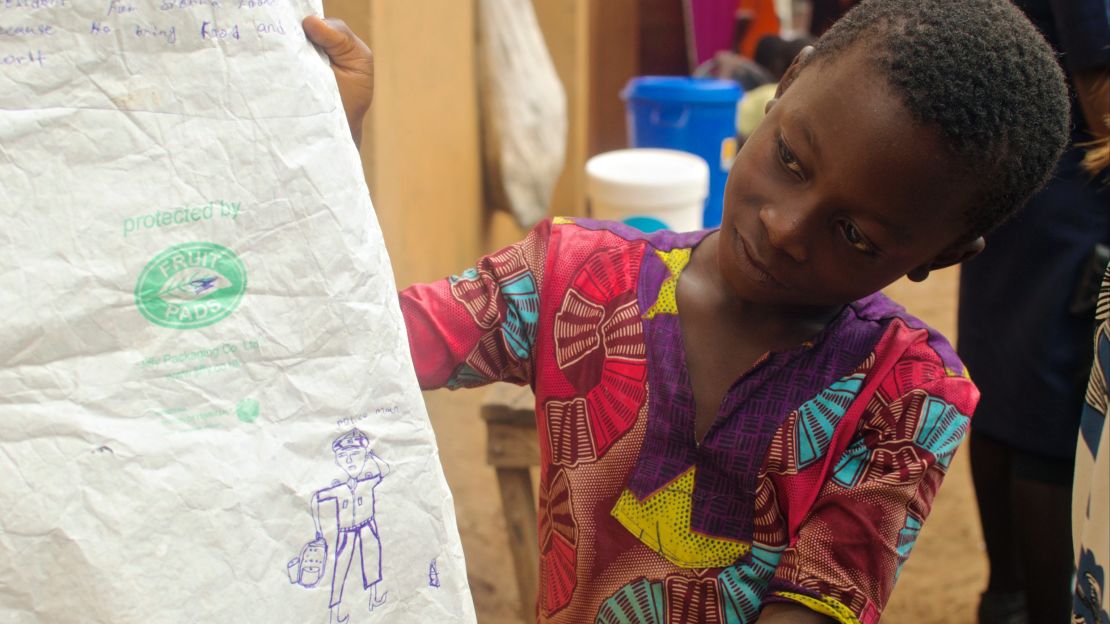
READ MORE: How you can help Sierra Leone
That’s a plea echoed by Gabriel Fattah Manga, who says those like him who lost so many loved ones in the mudslide are struggling to know how to cope.
“I have cried a lot. I have nothing to do more because they are gone,” he says. “I will now look to what God will do for me.
“For now, I’m in the street. I have nowhere to go. We need people to help us. If they can hear us, let them help us.”
Source link : https://www.cnn.com/2017/08/20/africa/sierra-leone-mudslide-survivors-grief/index.html
Author :
Publish date : 2017-08-20 07:00:00
Copyright for syndicated content belongs to the linked Source.





